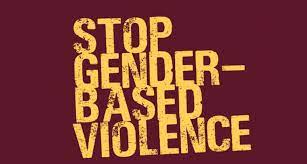The U.S. Centers for Disease Control and Prevention (CDC) and the Nigerian government have intensified efforts to address Gender-Based Violence (GBV) through community interventions and approaches.
The CDC’s Gender and GBV Programme Specialist, Mrs Bukola Adewunmi disclosed this on Thursday in Abuja, at the bi-monthly U.S. CDC media roundtable.
The session focused on GBV and how the U.S. CDC and Nigeria have improved response through community interventions and approaches.
Adewunmi stressed the CDC’s commitment to addressing gender equality and GBV.
“We believe that everyone, regardless of sex, gender, socioeconomic status or cultural background, deserves the highest attainable standard of health.
“Our comprehensive approach includes community-based interventions to transform harmful social norms and equip individuals with essential skills to manage their health and well-being,” she said.
She outlined the CDC’s violence prevention framework, highlighting facility-level interventions and community-based approaches.
Adewunmi stressed the importance of collective efforts.
“We screen everyone for GBV, provide post-violence care services free of charge and refer survivors to appropriate services.
“Together, we can create safer, more equitable communities for all,” she said
Ms. Titilope Omishina, a GBV survivor, shared her poignant testimony.
“In 2011, I was planning my wedding when the judge required biomedical reports.
“Discovering I was HIV-positive, the judge cancelled the wedding and my fiancé’s family abandoned me,” she said.
Omishina recounted her struggles, attempted suicide and eventual acceptance.
However, she said her husband later rejected her, citing his inability to care for her or their unborn child.
“During the COVID-19 lockdown, I stopped taking my medication, feeling hopeless.
“A friend advised me to reach out to APIN Public Health Initiative an NGO working to promote health and human rights in Nigeria, and that decision changed my life,” she said.
She said that APIN provided her with medical care, counselling, economic empowerment, access to antiretroviral treatment, rent and capital to start a business.
“I became a mentor and role model for HIV-positive women,” She said.
The APIN Deputy CEO, Dr Jay Samuels reiterated the organisation’s dedication to addressing GBV.
Samuels said that the collaboration between CDC, APIN and the government demonstrated a commitment to combating GBV and promoting gender equality.
“This partnership aims to strengthen health systems, improve service delivery and address the social determinants of health,” he said.
He said that the event marked a crucial step toward safer, more equitable communities.
He highlighted APIN’s efforts in providing comprehensive services, including HIV testing, counselling and treatment.
“We have reached over 500,000 individuals with GBV prevention and response services,” he said.
The event concluded with a call to action, urging stakeholders to prioritise GBV prevention and response.
NAN


